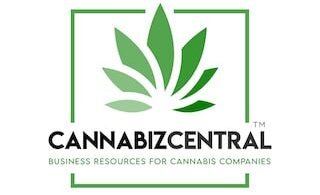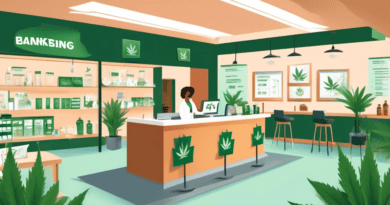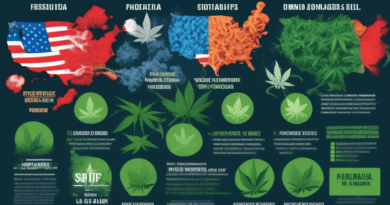Navigating FDA Regulations in the CBD Market
The ascent of Cannabidiol (CBD) in the wellness market has been nothing short of meteoric. Its popularity has surged, from healthcare professionals recommending it for diverse health benefits to consumers swearing by its efficacy in managing anxiety, pain, and various other conditions. However, as the market for CBD continues to expand, navigating the regulatory landscape imposed by the U.S. Food and Drug Administration (FDA) has become increasingly complex for manufacturers, distributors, and retailers.
Understanding CBD and Its Legal Status
CBD is a non-psychoactive compound derived from the Cannabis sativa plant, which includes both marijuana and hemp. The 2018 Farm Bill legalized the production of industrial hemp (defined as Cannabis sativa with less than 0.3% THC), making hemp-derived CBD legal at the federal level. However, the FDA retains regulatory authority over hemp CBD used in food, dietary supplements, cosmetics, and other health products.
The Role of the FDA
The FDA’s primary role is to ensure public health and safety by regulating the sale and use of foods, drugs, cosmetics, and dietary supplements. With the proliferation of CBD products, the FDA has been tasked with creating and enforcing regulations that ensure these products are safe and accurately labeled. The agency has issued warning letters to companies making unsubstantiated health claims and has made it clear that CBD products cannot be marketed as dietary supplements or added to food and beverages without FDA approval.
FDA Regulations and Guidelines
As of now, the FDA has approved only one CBD product, a prescription drug called Epidiolex used to treat certain forms of epilepsy. This approval highlights the agency’s stringent regulatory standards, which other products have yet to meet. Here are some key points to understand about current FDA regulations regarding CBD:
Prohibitions and Restrictions
1. **Unapproved New Drugs**: The FDA considers CBD products that claim to diagnose, cure, mitigate, treat, or prevent diseases as new drugs. Such products require FDA approval based on scientific evidence to ensure their safety and efficacy.
2. **Adding CBD to Food and Beverages**: It is illegal to add CBD to food, beverages, or dietary supplements marketed in interstate commerce. Any product positioned as a dietary supplement containing CBD is considered adulterated under the Federal Food, Drug, and Cosmetic Act (FD&C Act).
3. **False or Misleading Claims**: The FDA continues to monitor the market for products making false or misleading claims, and companies found in violation face warning letters and potential enforcement actions.
Labeling and Marketing Compliance
Proper labeling and marketing practices are vital for CBD companies to remain compliant with FDA regulations. Here are the key aspects involved:
1. **Accurate Ingredient Listings**: Labels must accurately list all ingredients, including the amount of CBD per serving.
2. **No Health Claims**: Labels cannot make any claims about the health benefits of CBD without FDA approval. This includes statements about its ability to treat anxiety, depression, pain, or any other medical condition.
3. **Proper Use Instructions**: Clear instructions on how to use the product, along with potential side effects and contraindications, should be provided.
4. **Batch and Lot Numbers**: Including batch and lot numbers helps in tracking and ensuring product consistency and safety.
5. **Manufacturer Details**: The label must include the name and address of the manufacturer, packer, or distributor.
Pathways for Legal CBD Products
To bring a legal CBD product to market, companies have a few pathways:
1. **Drug Approval Process**: This rigorous pathway involves submitting clinical trial data demonstrating the safety and efficacy of the product for its intended use.
2. **GRAS (Generally Recognized As Safe) Status**: Companies can conduct studies to show their CBD products meet the criteria for GRAS status, but this is a complex and costly process.
3. **Petitions for Rulemaking**: Stakeholders can petition the FDA to create new regulatory frameworks specific to CBD, although this is a lengthy and uncertain process.
Challenges and Opportunities
Despite the hurdles, the growing CBD market presents numerous opportunities. By adhering to FDA regulations, companies can not only avoid legal pitfalls but also build consumer trust and credibility. Additionally, ongoing research and increasing awareness might pave the way for more streamlined approval processes and clearer guidelines in the future.
In conclusion, while navigating the FDA regulations in the CBD market is complex, a clear understanding of the legal landscape and a commitment to compliance can help companies succeed in this evolving industry. Keeping abreast of regulatory updates and prioritizing transparency will be key to maintaining a foothold in the competitive CBD market.




